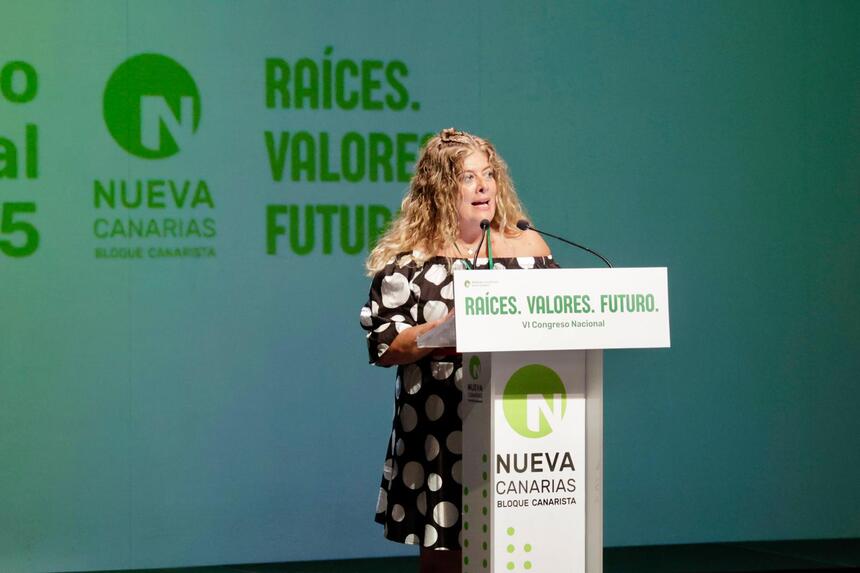
Nueva Canarias-Bloque Canarista (NC-bc) has wanted to denounce what they consider an occurrence and a lack of sensitivity on the part of the Insular Council of Lanzarote and the area of historical heritage, as a theatrical performance is scheduled to take place at the indigenous archaeological site of Zonzamas.
For Belén Machín, National Secretary of Identity and Canary Culture of NC-bc, “the site of Zonzamas is not a theatre or a stage for such activities with an audience, but a sacred, fragile place of historical and heritage significance for the Lanzarotean and Canary society that must be respected and protected.”
“The site is in a lamentable state, in semi-neglect, without even minimal maintenance. Indigenous ceramics are scattered throughout the very space where they want to place parking for attendees of the activity. This is a genuine affront to our indigenous heritage and our culture,” states Machín in a press release, who also questions “the safety and prevention measures that the site may have, given that it is preserved from any gathering of groups of people.”
NC-bc demands that the Insular Council of Lanzarote “focus on the restoration of the site, its care and preservation, and, once we have a true interpretation and dissemination centre for our past, consider activities of this kind.” Likewise, they urge the heritage area to take care in repairing the area, the protective fencing, and to promote true protection of the site.
“If the Council persists in continuing with this event, we will consider taking legal action before the relevant authorities so that those responsible account for this decision,” concludes Belén Machín.
Celebration of Beñesmen
Nueva Canaria-Bloque Canarista (NC-bc) has not wanted to miss the opportunity to encourage Lanzarotean society to learn about and celebrate the indigenous Canary New Year, better known as Beñesmen.
Beñesmen was a harvest celebration, particularly for the agricultural cycle of grains such as wheat and barley. It was held in gratitude to the gods for the fruits obtained and to ask for fertility for the next sowing. It usually took place in August or September, coinciding with the end of summer and the closure of the agricultural cycle. It is associated with the beginning of the agricultural new year for the indigenous Canary people.
“From NC-bc, we want to re-signify this day and what it represented for indigenous Canary culture, a rich and ancestral culture that we must learn about, disseminate, and protect. It is a pity that these significant days for Canary culture are unknown to the majority of society,” states Belén Machín.
“We must make an educational and cultural effort to promote our material and immaterial indigenous heritage. It is our culture and our history, part of what we are today as a people,” emphasises Machín.















